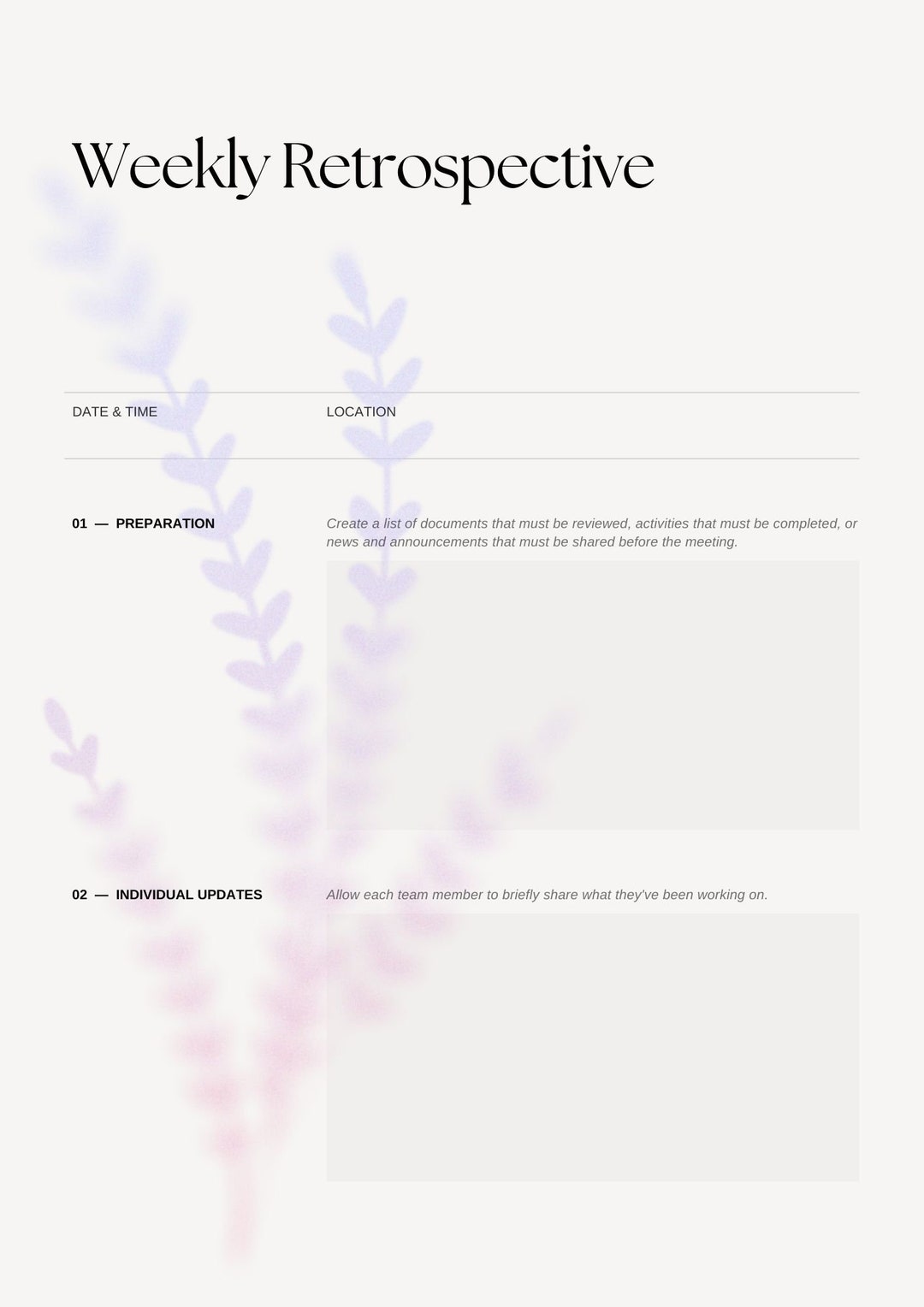From Failure To Success: A Weekly Retrospective Analysis

Table of Contents
Identifying Areas for Improvement: Analyzing Your Failures
Effective failure analysis is the cornerstone of a successful weekly retrospective. Understanding why things went wrong is crucial for preventing future setbacks. This involves more than just acknowledging mistakes; it requires a deep dive into root causes and the development of actionable solutions.
- Define Failure: Clearly identify what constitutes a "failure" within the context of your goals. Don't shy away from honest self-assessment. A missed deadline might be a failure for one project but a minor setback for another. Defining your parameters upfront is crucial for objective analysis.
- Root Cause Analysis: Dig deeper than surface-level issues. Ask "why" repeatedly to uncover the underlying causes of your failures. For example, "Missed deadline on project X – why? Insufficient planning? Lack of resources? Poor time management? Was there a lack of communication with stakeholders?" This process, often called a "5 Whys" analysis, helps uncover the true root of the problem.
- Objective Assessment: Avoid emotional biases. Analyze failures objectively, focusing on data and evidence rather than feelings. Use metrics and factual information to support your assessment. This helps avoid blaming and fosters a more productive approach to problem-solving.
- Example: "Missed deadline on project X – why? Insufficient planning (Why? Lack of time allocated for planning). Lack of resources (Why? Budget constraints weren't anticipated). Poor time management (Why? Unrealistic deadlines were set)."
Actionable Steps to Rectify Failures
Identifying weaknesses is only half the battle; creating an improvement plan is critical. This involves developing concrete steps to avoid repeating past mistakes.
- Create a concrete action plan: Address each identified root cause with a specific, actionable plan. For example, if insufficient planning was a factor, implement a new planning process with clear timelines and checkpoints.
- Set realistic, measurable goals: Avoid setting yourself up for failure by setting goals that are achievable and measurable. This allows you to track your progress effectively and make necessary adjustments.
- Seek feedback from colleagues or mentors: Gaining fresh perspectives can illuminate blind spots and provide valuable insights you might have missed. This external feedback is a vital component of a comprehensive performance review.
- Track your progress and adjust your approach: Regularly monitor your progress and make adjustments to your approach as needed. This iterative process is crucial for continuous improvement.
Celebrating Successes and Identifying Replicable Strategies
While failure analysis is important, a comprehensive weekly retrospective also includes celebrating successes and identifying best practices. Understanding what worked well is just as crucial as understanding what didn't.
- Acknowledge Achievements: Take time to celebrate your wins, no matter how small. This boosts morale and reinforces positive behaviors. Acknowledging success motivates further effort.
- Identify Success Factors: Analyze what contributed to your successes. What strategies worked best? Were there unexpected positive outcomes?
- Document Best Practices: Create a system for recording successful strategies to easily replicate them in the future. This could be a simple spreadsheet or a more sophisticated project management tool. This promotes strategy replication and efficient workflow.
- Example: "Successfully launched marketing campaign Y – why? Effective targeting (Which specific targets were most effective?). Compelling messaging (What elements of the messaging resonated best?). Strong team collaboration (What specific collaboration tools or strategies were used?)."
Setting Goals and Planning for the Following Week
The final step in your weekly retrospective analysis is to set goals and plan for the upcoming week. This ensures that lessons learned are applied immediately.
- SMART Goals: Set Specific, Measurable, Achievable, Relevant, and Time-bound goals for the upcoming week. This framework ensures that your goals are clear, focused, and trackable.
- Prioritize Tasks: Focus your energy on the most important tasks that align with your overarching goals. Use techniques like the Eisenhower Matrix (urgent/important) to prioritize effectively.
- Schedule Time Blocks: Allocate specific time blocks for focused work on key tasks. This enhances time management and minimizes distractions.
- Consider Potential Challenges: Anticipate potential roadblocks and develop contingency plans to mitigate risks. This proactive approach prevents minor setbacks from becoming major problems.
Conclusion
This weekly retrospective analysis process provides a structured approach to learn from past experiences, both positive and negative. By consistently analyzing your successes and failures, you can identify patterns, refine your strategies, and cultivate a continuous cycle of improvement. Embracing this methodology empowers you to transform setbacks into stepping stones towards lasting success. Start implementing your own weekly retrospective analysis today and witness the positive impact on your productivity and overall achievements. Don't just react to failures; proactively analyze them to turn setbacks into triumphs. Start your journey to consistent success with a dedicated weekly performance review and improve your goal setting and time management strategies.

Featured Posts
-
 10 Fantastic Tv Shows Cut Short Why Were They Cancelled
May 17, 2025
10 Fantastic Tv Shows Cut Short Why Were They Cancelled
May 17, 2025 -
 Previsiones De Futbol Y Otros Deportes Prensa Latina
May 17, 2025
Previsiones De Futbol Y Otros Deportes Prensa Latina
May 17, 2025 -
 3 40
May 17, 2025
3 40
May 17, 2025 -
 Tom Hanks And Tom Cruise A 1 Debt And A Hollywood Bromance
May 17, 2025
Tom Hanks And Tom Cruise A 1 Debt And A Hollywood Bromance
May 17, 2025 -
 7 Bit Casino A Leading Canadian Online Casino For 2025
May 17, 2025
7 Bit Casino A Leading Canadian Online Casino For 2025
May 17, 2025
